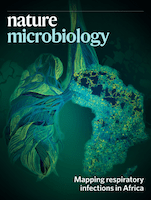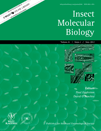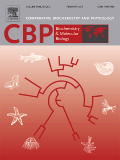
EXTREMOPHILES
Scope & Guideline
Exploring the Resilience of Life in Extremes
Introduction
Aims and Scopes
- Extremophilic Microbial Diversity:
The journal focuses on the diversity of extremophiles, including bacteria, archaea, and fungi found in extreme environments such as hot springs, salt lakes, and polar regions. - Molecular and Genomic Adaptations:
Research on the molecular mechanisms and genomic adaptations that allow extremophiles to survive and thrive in extreme conditions is a core area, highlighting the genetic basis of their resilience. - Biotechnological Applications:
Papers often explore the industrial and biotechnological applications of extremophiles, including enzyme production, bioremediation, and bioenergy. - Environmental and Ecological Perspectives:
The journal also addresses the ecological roles of extremophiles in their environments, contributing to our understanding of biogeochemical cycles and ecosystem dynamics. - Astrobiology and Evolutionary Insights:
Topics related to astrobiology, particularly the implications of extremophiles for understanding potential life on other planets and the evolutionary adaptations of life in extreme conditions, are also prominent.
Trending and Emerging
- Metagenomics and Community Analysis:
Recent publications increasingly emphasize metagenomic approaches, allowing researchers to analyze microbial communities in extreme environments and uncover previously uncharacterized species and functional potentials. - Bioprospecting for Industrial Enzymes:
There is a growing interest in bioprospecting extremophiles for enzymes with industrial applications, particularly in biocatalysis, bioremediation, and sustainable production processes. - Extremophiles in Climate Change Research:
Research examining the role of extremophiles in climate change, particularly their responses to environmental stressors and their potential in biotechnological solutions for climate adaptation, is emerging as a critical theme. - Astrobiology and Life Detection Strategies:
The implications of extremophiles for astrobiology are gaining attention, focusing on how these organisms inform our understanding of life in extraterrestrial environments and the development of life detection strategies. - Functional Characterization of Extremozymes:
There is a notable trend towards the functional characterization of extremozymes, including studies on their mechanisms and potential applications in various fields, including pharmaceuticals and environmental science.
Declining or Waning
- Traditional Culture-Based Approaches:
There has been a noticeable decline in research employing traditional culture-based methods for isolating extremophiles, as emphasis shifts towards metagenomic and high-throughput sequencing techniques. - Limited Scope of Environmental Settings:
Research focusing solely on specific, well-characterized environments (e.g., hot springs) is becoming less common, with a broader range of extreme environments now being explored. - Less Emphasis on Single-Organism Studies:
While single-organism studies were once prevalent, there is a growing trend towards community-level analyses and metagenomic studies, leading to a decline in papers focused exclusively on individual extremophile species.
Similar Journals

BIOLOGY BULLETIN
Empowering Research in Genetics and Molecular Biology.BIOLOGY BULLETIN is a prominent academic journal published by PLEIADES PUBLISHING INC, dedicated to advancing the fields of Agricultural and Biological Sciences as well as Biochemistry, Genetics, and Molecular Biology. With an ISSN of 1062-3590 and E-ISSN of 1608-3059, the journal has been a vital resource for researchers and professionals since its commencement in 1996. Located in the United States, BIOLOGY BULLETIN operates within a highly competitive academic landscape, achieving a 2023 ranking in the Q3 quartile for Agricultural and Biological Sciences and Q4 for Biochemistry, Genetics, and Molecular Biology, highlighting its commitment to delivering impactful research despite its challenges. Researchers seeking to publish their findings will find a platform for significant insights, as reflected in its Scopus rankings, where it stands at #183 and #199 out of 221 in its respective categories, showcasing opportunities for growth and visibility. While currently not an open-access publication, BIOLOGY BULLETIN plays a crucial role in facilitating scholarly communication and fostering an understanding of biological sciences, making it an essential read for academics, professionals, and students alike.

CANADIAN JOURNAL OF MICROBIOLOGY
Pioneering Discoveries in Applied MicrobiologyThe Canadian Journal of Microbiology, published by Canadian Science Publishing, is a well-respected journal established in 1954 that serves as a vital platform for advancing knowledge in the fields of microbiology and related disciplines. With an ISSN of 0008-4166 and an E-ISSN of 1480-3275, this journal is recognized for its rigorous peer-review process and its commitment to disseminating high-quality research that spans applied microbiology, biotechnology, genetics, immunology, and more. Currently indexed in several prestigious databases, its impact factor and category quartiles highlight its significance, ranking in the top tiers of applied microbiology and biotechnology as well as other intersecting fields. The journal provides an essential resource for researchers, professionals, and students seeking to stay informed on the latest advancements and breakthroughs, facilitating collaboration and innovation in the microbiological sciences. Set in the dynamic landscape of academia from its headquarters in Ottawa, Canada, the Canadian Journal of Microbiology remains steadfast in its mission to promote research that addresses key challenges and opportunities within the microbiological community.

MICROBIOLOGY
Pioneering Research in Environmental and Clinical MicrobiologyMICROBIOLOGY (ISSN: 0026-2617, E-ISSN: 1608-3237), published by MAIK NAUKA/INTERPERIODICA/SPRINGER, is a pivotal journal in the field of microbiological research, operating from the vibrant hub of New York, United States. With a focus on the intricate relationships and functionalities of microorganisms, MICROBIOLOGY serves as an essential resource for professionals and researchers dedicated to advancing the knowledge of applied microbiology and biotechnology. As of 2023, it holds a competitive Q3 and Q4 category ranking in Applied Microbiology and Biotechnology and Microbiology, respectively, reflecting its commitment to high-quality and impactful research. Although currently not open access, the journal extends comprehensive insights into critical topics that span environmental microbiology, clinical applications, and biotechnology advancements, making it a vital platform for disseminating innovative findings in this ever-evolving discipline. Researchers and students alike will find MICROBIOLOGY to be an invaluable addition to their academic and professional repertoire.

YEAST
Advancing yeast biology for a sustainable future.YEAST is a renowned peer-reviewed journal published by WILEY, dedicated to advancing the understanding of yeast biology and its applications in various scientific fields. Since its inception in 1985, YEAST has significantly contributed to the disciplines of microbiology, biotechnology, biochemistry, and genetics, achieving respectable rankings within its categories, including Q2 status in Applied Microbiology and Biotechnology and Q2 in Biotechnology as of 2023. With an emphasis on high-quality research, it explores diverse aspects of yeast organisms, from their cellular mechanisms to biotechnological applications. Although it does not currently offer an open-access option, the journal provides valuable insights and findings that are applicable to both academia and industry, making it an essential resource for researchers, professionals, and students interested in the functional and applied dimensions of yeast. With its editorial rigor and commitment to quality, YEAST continues to be a vital platform for disseminating innovative research that shapes future biotechnological advancements.

Nature Microbiology
Pioneering Research for a Healthier TomorrowNature Microbiology is a premier journal published by NATURE PORTFOLIO that has firmly established itself within the realms of microbiological research since its inception in 2016. Based in the United Kingdom, this prestigious journal specializes in the intricacies of applied microbiology, cell biology, genetics, immunology, and medical microbiology, making it a cornerstone for academics and professionals alike. With an impressive Scopus ranking placing it in the top tier across various relevant categories—such as rank #3 in Genetics and #2 in Applied Microbiology—it underscores the journal’s commitment to high-quality, impactful research. Although it operates under a subscription model, Nature Microbiology's broad Open Access policy facilitates greater dissemination and visibility for its authors. The journal's objectives are centered around publishing cutting-edge advancements that enhance our understanding of microbial life, its interactions, and applications in health and disease. As a Q1 journal across multiple disciplines, it holds immense significance for researchers, professionals, and students enthusiastic about the latest innovations and breakthroughs in microbiology.

INSECT MOLECULAR BIOLOGY
Innovating Insect Science with Molecular PerspectivesInsect Molecular Biology, published by Wiley, is a leading journal dedicated to advancing the field of insect biology through molecular perspectives. With a prominent ISSN of 0962-1075 and an E-ISSN of 1365-2583, this journal has gained a significant reputation since its inception in 1992, showcasing a diverse array of research that spans across genetics, molecular biology, and specific aspects of insect science. As of 2023, it has achieved a remarkable categorization, recognized as Q1 in Insect Science and Q3 in Genetics and Molecular Biology, underscoring its pivotal role in fostering academic discourse at the intersection of biology and technology. The journal is indexed in esteemed databases with strong rankings, sitting at the 82nd percentile in Insect Science, which highlights the impactful research it publishes. While it currently does not offer open access, Insect Molecular Biology remains an essential resource for researchers, students, and professionals eager to explore the complexities of insect life at the molecular level. By disseminating innovative findings and methodologies, the journal significantly contributes to both theoretical and applied entomological research, making it a cornerstone for anyone passionate about the intricate world of insects.

INTERNATIONAL MICROBIOLOGY
Advancing the Frontiers of Microbial ScienceINTERNATIONAL MICROBIOLOGY, published by SPRINGER, is a prominent peer-reviewed journal showcasing research across the diverse field of microbiology. Since its inception in 1998, the journal has provided a vital platform for the dissemination of innovative microbiological findings, with a focus on both fundamental and applied aspects of the discipline. Boasting an impressive Category Quartile ranking of Q2 in Medical Microbiology and Q3 in General Microbiology as of 2023, INTERNATIONAL MICROBIOLOGY stands out in the metrics of academic influence, ranking 60th out of 140 in the medical context and 90th out of 182 within the broader field of immunology and microbiology. This journal not only caters to senior researchers and academics but also engages budding scientists and professionals eager to stay abreast of the latest developments in microbiological research. Published without open access, it diligently curates quality content that contributes to the ongoing discourse in microbiology, ensuring that all articles uphold the highest academic standards. As the field continues to evolve, INTERNATIONAL MICROBIOLOGY remains committed to fostering scholarly communication and advancing microbiological knowledge on a global scale.

COMPARATIVE BIOCHEMISTRY AND PHYSIOLOGY B-BIOCHEMISTRY & MOLECULAR BIOLOGY
Bridging Biological Systems Through Molecular InsightsComparative Biochemistry and Physiology B: Biochemistry & Molecular Biology, published by Elsevier Science Inc, is a premier journal dedicated to the field of biochemistry and molecular biology with a specific focus on comparative analyses across various biological systems. Since its inception in 1971, the journal has made significant contributions to our understanding of the biochemical and physiological processes that differentiate organismal function across animal and aquatic life. The journal holds a commendable position in the academic community, evidenced by its 2023 rankings, which place it in the second quartile for Animal Science and Zoology and Aquatic Science, and the third quartile for both Biochemistry and Molecular Biology as well as Physiology. Researchers and students can access cutting-edge research through this highly respected publication, which continues to influence the future of biological sciences. While currently not an Open Access journal, its rigorous peer-review process ensures that only high-quality articles are disseminated, further solidifying its role as a critical resource for professionals and academics alike seeking to explore the intricate relationships between biochemical structures and physiological functions.

JOURNAL OF BASIC MICROBIOLOGY
Exploring Innovations in Applied MicrobiologyJOURNAL OF BASIC MICROBIOLOGY is a premier publication in the field of microbiology, published by WILEY since 1985. With a significant presence in Germany, this journal encompasses a wide spectrum of research topics, focusing on applied microbiology and biotechnology as well as diverse areas within medicine. Holding a commendable Q2 ranking in both its categories for 2023, it plays a crucial role in disseminating innovative findings and methodologies to the community. Researchers will find it to be an essential platform for sharing high-quality work, where it currently stands at rank #47 in the applied microbiology and biotechnology category, representing the 63rd percentile among international journals. The JOURNAL OF BASIC MICROBIOLOGY caters to a growing audience of professionals and students, offering insights essential for advancement in microbiological research and its applications. While it does not currently offer an Open Access option, it remains an influential outlet for academic excellence, continuously contributing to the development of the field through its rigorous peer-reviewed articles.

Malaysian Journal of Microbiology
Exploring the Microbial World: Research Without BordersMalaysian Journal of Microbiology is a prestigious open-access journal dedicated to advancing the field of microbiology, published by the Malaysian Society for Microbiology. Since its inception in 2005, this journal has become an essential platform for researchers and practitioners, facilitating the dissemination of innovative studies in applied microbiology, biotechnology, and infectious diseases. Based in Penang, Malaysia, this journal not only focuses on local microbiological research but also positions itself within the broader global scientific community. Although currently placed in the Q4 category in several relevant fields—including Applied Microbiology and Biotechnology, Infectious Diseases, and Medical Microbiology according to the 2023 Scopus rankings—it plays a crucial role in encouraging novel research and fostering collaboration among scientists. The journal encourages submissions that contribute to the understanding of microbial processes, disease mechanisms, and novel biotechnological applications, thereby supporting the continuous growth of knowledge in microbiology. With open access since its launch, the Malaysian Journal of Microbiology ensures that all published works are freely available to the public, enhancing their visibility and impact within the scientific community.